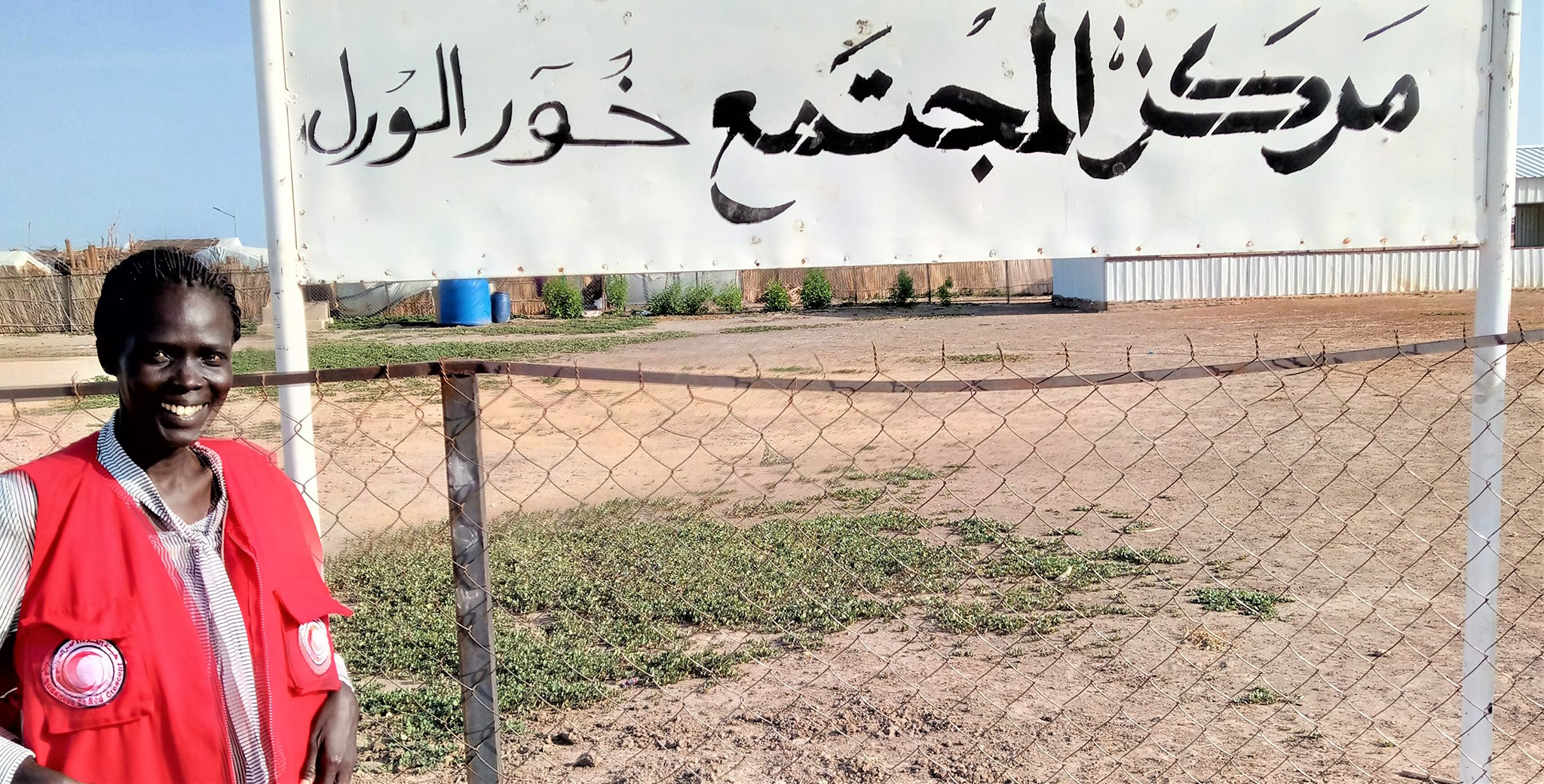
The Horrors of the Khartoum War and Its Impact on the Lives of Refugees from South Sudan
Tahani Ajak
They love life and cling to the little that keeps them on its edge. They stubbornly survived with their children since the outbreak of war in 2013 between President Salva Kiir and his deputy Riek Machar, crossing borders to establish a new life, inspired by memories of their rich lives lived in their villages to the rhythm of drums, the sounds of their songs, and the hustle of their feet on the ground as they perform their communal dances, blessed by their gods Nyankodev and Nikang.
More than half a million people from the Shilluk and Nuer tribes live in refugee camps in White Nile State, distributed across eleven camps on the eastern and western banks of the Nile, relying on the meager food rations provided by humanitarian organizations working in relief efforts. However, with the prolonged stay and deteriorating services and the lack of job opportunities, many families are forced to leave the refugee camps for large cities and their outskirts in search of work and better opportunities to improve their livelihoods.
The city of Khartoum was one of the destinations for many families, with an estimated 80% of refugees residing there, living on the margins with barely enough to survive. Their lives are miserable in homes barely shielding them from the scorching sun and the cold winter bites. They rely on daily household chores and construction work, with every family leaving early to earn the days livelihood and returning in the evening with their daily earnings and a bag of bread and vegetables.
With the outbreak of armed clashes between the army and the Rapid Support Forces on Saturday morning, which was a sad and bloody morning in the city, soldiers spread throughout its streets and alleys, exchanging heavy gunfire amid the thunderous artillery fire and airstrikes chasing down enemy forces, penetrating fragile homes, leaving scattered corpses and human remains everywhere, with severe injuries and panic. It was certain death, with no homes resisting the hail of bullets and airstrikes, and no nearby passage to safety.
The generals may have missed their military targets, but on that day, they did not miss dropping a shell on the house where Marsa and her aunt lived in the suburbs of Omdurman, where they shared the same house and work. It claimed the life of her aunt Veronica and left the homeowner with a severe injury, as the shrapnel pierced her fragile body. But in a country in a state of emergency, there is no sound louder than the sound of gunfire, the footsteps of soldiers, and the ecstasy of their victory chants.
There was no response, no intervention, nothing to be done to save her. She clung to life for days, facing the possibility of excruciating pain with courage and a smile that never faded, instilling hope in those around her for her survival. But she did not endure; she left, leaving behind a river of tears and a lump in the hearts of her relatives and those who followed her condition.
The clashes expanded to encompass all the cities of Khartoum, from the downtown area to the General Command of the Army, the airport, and the surrounding neighborhoods, spreading to the distant and forgotten outskirts, exacerbating the humanitarian conditions for civilians, with chaos reigning amid bodies strewn in the streets, gnawed by dogs and decaying, and severely injured individuals blocking roads, unable to reach hospitals for treatment.
The planes continue to fly over the skies of Khartoum, bombing civilians, while the exits are blocked for those seeking salvation. Bullets claim the lives of all who dare to venture out, but the call of life is stronger than death, as many trapped individuals venture out amid risks and imminent death from every angle.
War always produces a cruel reality, from the siege of death to the siege of the lack of health services and other services, with the prices of essential commodities skyrocketing and on the verge of depletion due to the closure of many stores or the looting of their goods by marauders. Also, the cost of travel tickets has multiplied exponentially, along with the presence of checkpoints on roads, which pose a grave danger to their lives.
Many refugee families living in Khartoum are unable to afford the cost of travel tickets, exacerbating their suffering. This is because they primarily rely on daily work as a source of income, so they choose to walk, carrying their children, elderly, and disabled, along with what little essential belongings they have, increasing their burden for the journey. Thus, they walk towards the refugee camps in White Nile State or cross the borders in reverse migration towards South Sudan, while others are crowded in stations, hoping to reach safe land outside the hell of Khartoum.
Source: migration-control.info
Publication Date: May 18, 2023

